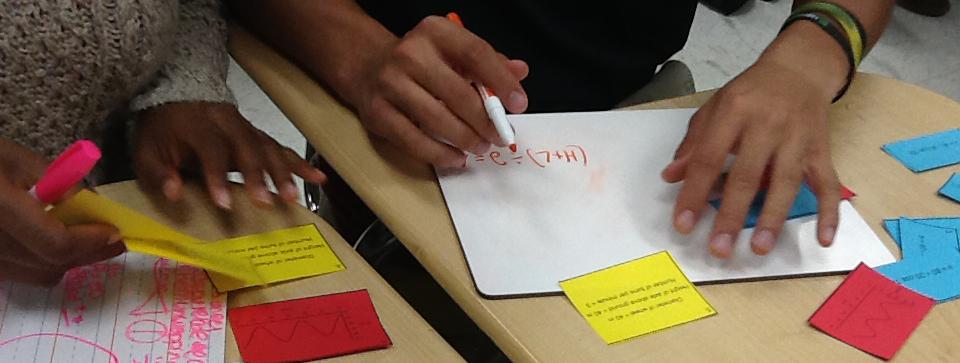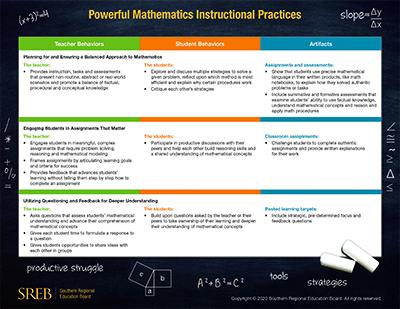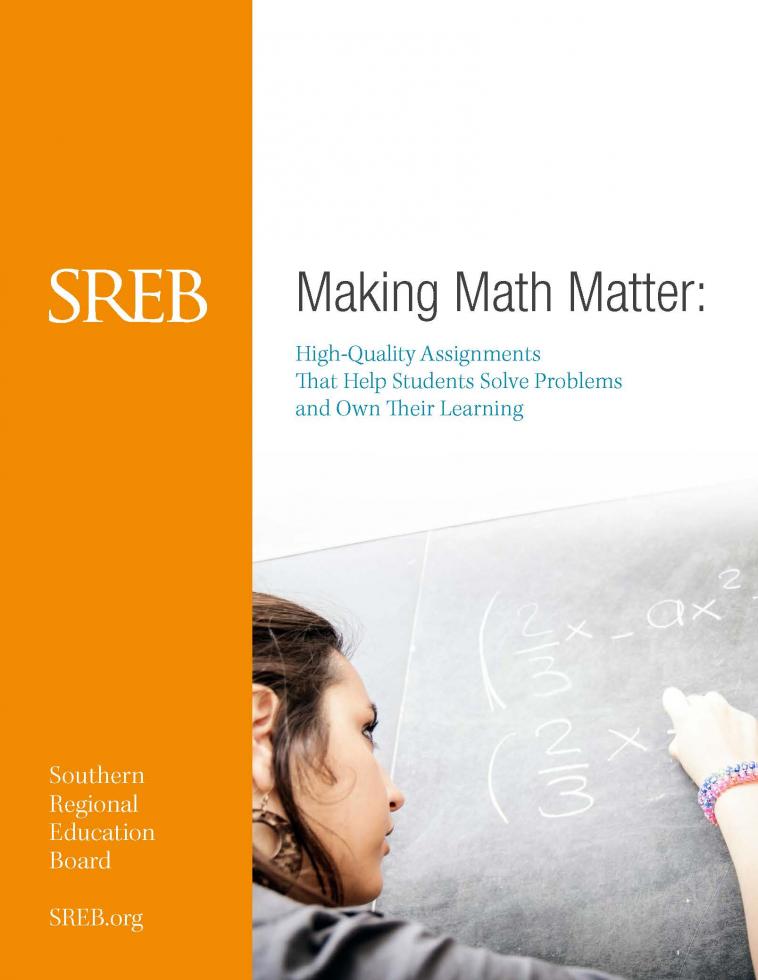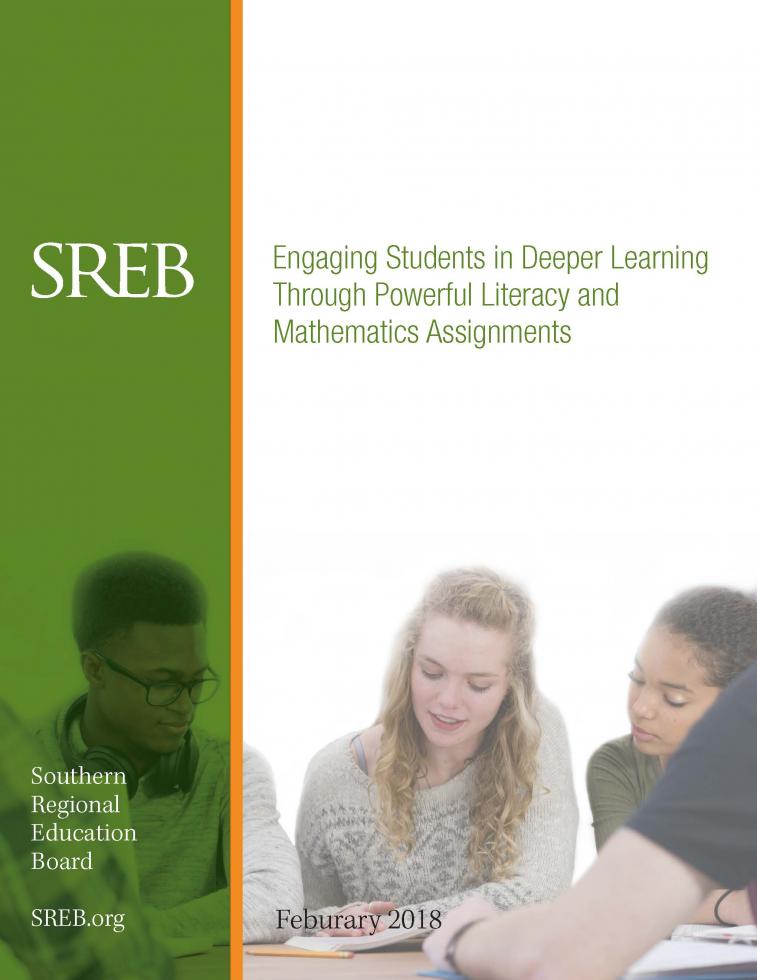Professional Development Mathematics
Mathematics
SREB’s Powerful Mathematics Instructional Practices empower students to view math as an essential tool for solving real-world problems.
With professional development and coaching support from SREB, math teachers in grades three through 12 build a deep conceptual understanding of math content and learn how to create assignments and assessments that advance students’ procedural fluency, math reasoning and problem-solving skills.
Powerful Mathematics Practices
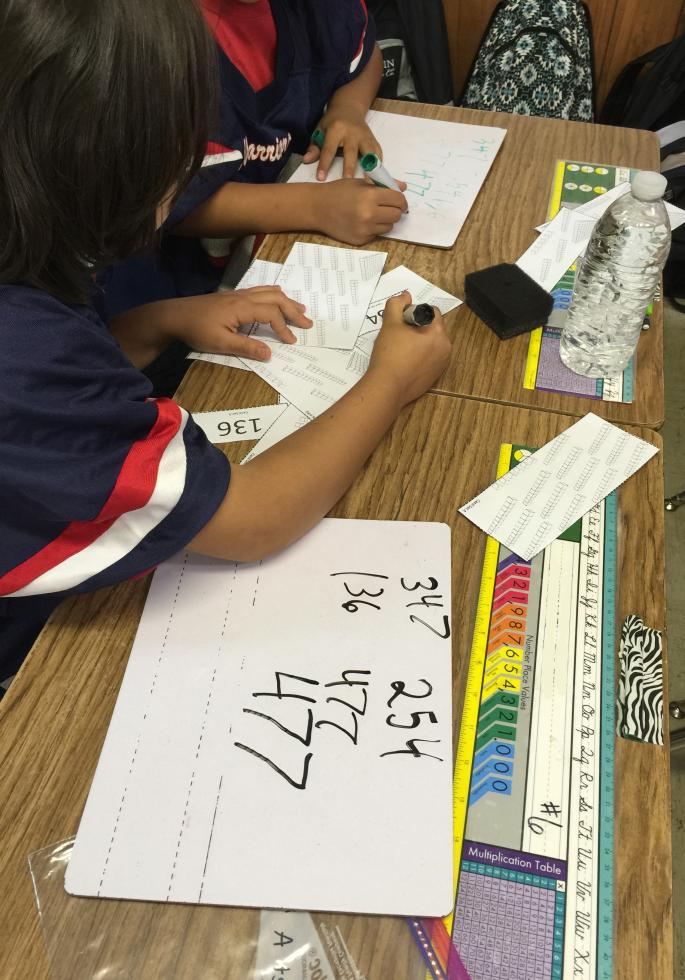 SREB’s Powerful Mathematics
Instructional Practices help teachers take a balanced
approach to math instruction in which they use formative
assessment lessons to check students’ understanding of math
concepts and correct any misunderstandings.
SREB’s Powerful Mathematics
Instructional Practices help teachers take a balanced
approach to math instruction in which they use formative
assessment lessons to check students’ understanding of math
concepts and correct any misunderstandings.
Teachers using these practices challenge students with complex assignments that engage students in a productive struggle.
What Do the Practices Look Like?
Our Powerful Mathematics Instructional Practices Rubric offers examples of teacher and student behaviors and learning artifacts found in classrooms that embrace these six practices:
- Planning for and ensuring a balanced approach to mathematics
- Engaging students in assignments that matter
- Utilizing questioning and feedback for deeper understanding
- Using formative assessment data
- Fostering a classroom environment that supports student ownership of learning
- Reflecting on teaching practice
Customizable Design and Delivery
We offer professional learning support that is never one-size-fits-all.
SREB’s leadership and instructional coaches partner with district- and school-based leaders to conduct an initial curriculum and instruction review or consultation to inform the scope and sequence of a customized professional learning plan.
In a typical implementation, districts or schools undertake a cycle of professional learning and face-to-face and virtual coaching. After each cycle, SREB’s coaches work with school leaders to review and revise the professional learning plan based on classroom observations, teacher and principal conversations, and other data.
Our approach builds capacity and sustainability by developing local expertise to spread the practices to new and existing teachers.
Powerful Mathematics Instructional Practices
Build students' procedural and reasoning skills and deepen their understanding of math concepts
Not Made for Math? Think Again
How to Turn Every Student Into a Math Person
Adrienne Dumas has heard it from kids for years, like so many teachers and parents: “I just don’t have a math brain.”
A math teacher at Northwest Rankin High School in Flowood, Mississippi, Dumas disagrees, and with good reason — her Algebra 1 and geometry students have a 100 percent passing rate for the past three years on the state test. Dumas and other teachers offer their tips for math success in a recent SREB High Schools That Work newsletter.
Making Math Matter
High-Quality Assignments That Help Students Solve Problems and Own Their Learning
This report presents results of teacher and student surveys on how powerful Mathematics Design Collaborative practices are shifting how teachers teach. It also summarizes student achievement data from schools using the strategies in four states. In vignettes and testimonials, teachers who completed SREB professional development on MDC share how they have grown as teachers and how their students’ understanding of math concepts has improved.
Math Classroom Strategies Steal the Show
Joy Hofmeister, Oklahoma State Superintendent of Schools, visited Moore High School in December to look at its technology program. And she did, but she also got a pleasant surprise when principal Mike Coyle showed her to an Algebra 2 classroom.
Mathematics department chair Nancy Nix reported that the superintendent was “blown away by the level of student engagement and mathematical discourse.”
Engaging Students in Deeper Learning Through Powerful Literacy and Mathematics Assignments
Too many students graduate high school without the foundational literacy and math skills needed to succeed in postsecondary education and careers. This can change if students are exposed to literacy and math practices that expose them to the types of grade-level assignments that will advance their achievement and prepare them for college and careers.
SREB offers professional development to teachers in powerful literacy and math practices that produce positive results. Read about survey results of more than 37,000 students.


